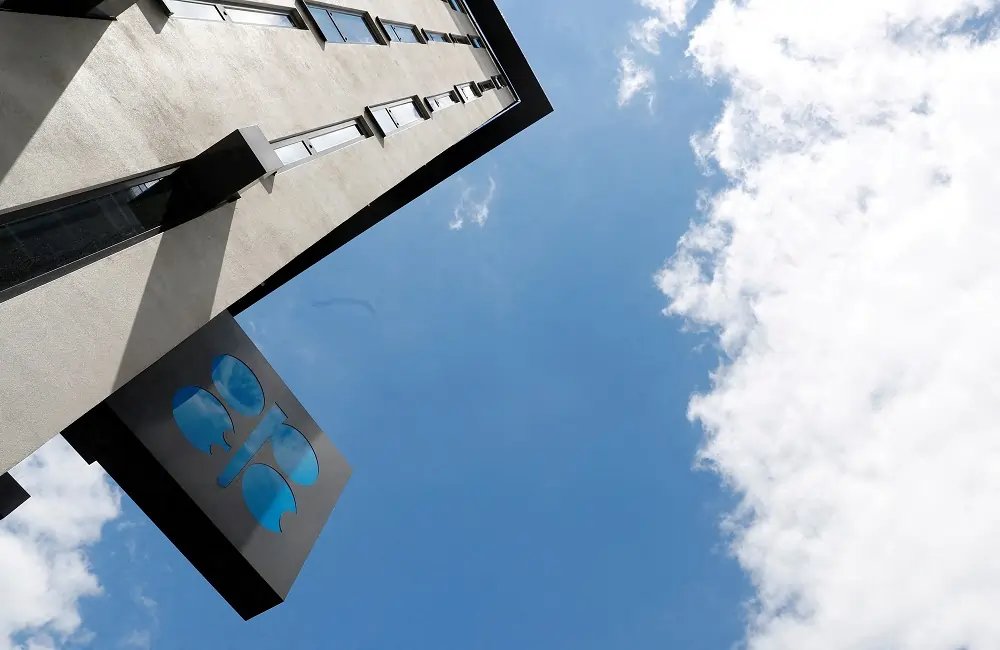OPEC+ extends deep oil production cuts into 2025


By Ahmad Ghaddar, Alex Lawler and Maha El Dahan
LONDON/DUBAI (Reuters) -OPEC+ agreed on Sunday to extend most of its deep oil output cuts well into 2025 as the group seeks to shore up the market amid tepid demand growth, high interest rates and rising rival U.S. production.
Brent crude oil prices have been trading near $80 per barrel in recent days, below what many OPEC+ members need to balance their budgets. Worries over slow demand growth in top oil importer China have weighed on prices alongside rising oil stocks in developed economies.
The Organization of the Petroleum Exporting Countries and allies led by Russia, together known as OPEC+, have made a series of deep output cuts since late 2022.
OPEC+ members are currently cutting output by a total of 5.86 million barrels per day (bpd), or about 5.7% of global demand.
Those include 3.66 million bpd of cuts, which were due to expire at the end of 2024, and voluntary cuts by eight members of 2.2 million bpd, expiring at the end of June 2024.
On Sunday, OPEC+ agreed to extend the cuts of 3.66 million bpd by a year until the end of 2025 and prolong the cuts of 2.2 million bpd by three months until the end of September 2024.
OPEC+ will gradually phase out the cuts of 2.2 million bpd over the course of a year from October 2024 to September 2025.
“We are waiting for interest rates to come down and a better trajectory when it comes to economic growth … not pockets of growth here and there,” Saudi Energy Minister Prince Abdulaziz bin Salman told reporters.
OPEC expects demand for OPEC+ crude to average 43.65 million bpd in the second half of 2024, implying a stocks drawdown of 2.63 million bpd if the group maintains output at April’s rate of 41.02 million bpd.
The drawdown will be less when OPEC+ starts phasing out the 2.2 million bpd voluntary cuts in October.
The International Energy Agency, which represents top global consumers, estimates that demand for OPEC+ oil plus stocks will average much lower levels of 41.9 million bpd in 2024.
“The deal should allay market fears of OPEC+ adding back barrels at a time when demand concerns are still rife,” said Amrita Sen, co-founder of Energy Aspects think tank.
Prince Abdulaziz said OPEC+ could pause the unwinding of cuts or reverse them if demand wasn’t strong enough.
QUICK DEAL
Analysts had expected OPEC+ to prolong voluntary cuts by a few months due to falling oil prices and sluggish demand.
But many analysts had also predicted the group would struggle to set targets for 2025 as it had yet to agree individual capacity targets for each member, an issue that had previously created tensions.
The United Arab Emirates, for instance, has been pushing for a higher production quota, arguing its capacity figure had been long under-estimated.
But in a surprise development on Sunday, OPEC+ postponed the discussions on capacities until November 2025 from this year.
Instead, the group agreed a new output target for the UAE which will be allowed to gradually raise production by 0.3 million bpd, up from the current level of 2.9 million.
OPEC+ agreed that it would use independently assessed capacity figures as guidance for 2026 production instead of 2025 – postponing a potentially difficult discussion by one year.
Prince Abdulaziz said one of the reasons for the delay was difficulties for independent consultants to assess Russian data amid Western sanctions on Moscow for its war on Ukraine.
The meetings on Sunday lasted less than four hours – relatively short for such a complex deal.
OPEC+ sources said Prince Abdulaziz, the most influential minister in the OPEC group, had spent days preparing the deal behind the scenes.
He invited some key ministers – mostly those who contributed to the voluntary cuts – to come to the Saudi capital Riyadh on Sunday despite meetings being largely scheduled online.
The countries which have made voluntary cuts to output are Algeria, Iraq, Kazakhstan, Kuwait, Oman, Russia, Saudi Arabia and the United Arab Emirates.
“It should be seen as a huge victory of solidarity for the group and Prince Abdulaziz,” said Sen, adding the deal would ease fears of Saudi Arabia adding barrels back due to Aramco’s share listing.
Saudi Arabia’s government has filed papers to sell a new stake in state oil giant Aramco that could raise as much as $13.1 billion, a landmark deal to help fund Crown Prince Mohammed bin Salman’s plan to diversify the economy.
OPEC+ will hold its next meeting on Dec. 1, 2024.
(Reporting by Yousef Saba, Olesya Astakhova, Vladimir Soldatkin; Writing by Dmitry Zhdannikov; Editing by Emelia Sithole-Matarise, Susan Fenton, Ros Russell and Giles Elgood)
OPEC+ is a coalition of oil-producing countries, including OPEC members and non-OPEC countries like Russia, that coordinate their oil production policies to manage oil prices.
Oil production cuts refer to the reduction of oil output by producing countries to stabilize or increase oil prices in response to market conditions.
Brent crude oil is a major trading classification of crude oil originating from the North Sea, used as a benchmark for pricing oil globally.
Global demand for oil refers to the total quantity of oil that consumers and industries worldwide are willing to purchase at a given price.
Voluntary cuts are reductions in oil output that some countries agree to implement on their own accord, rather than being mandated by OPEC or other organizations.
Explore more articles in the Top Stories category











